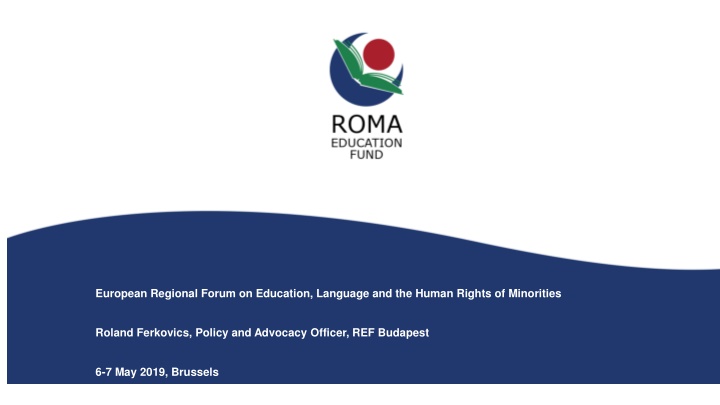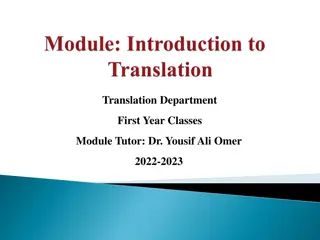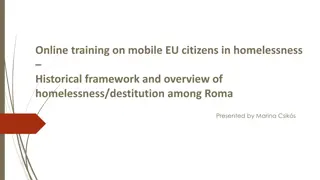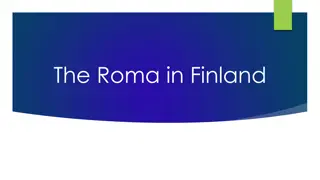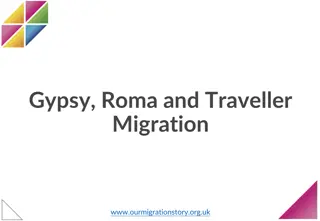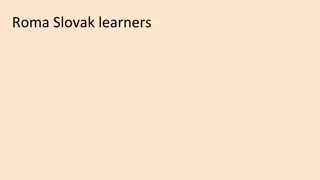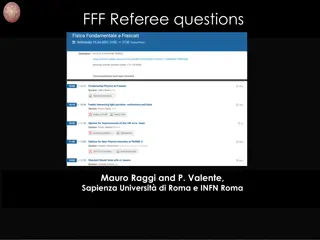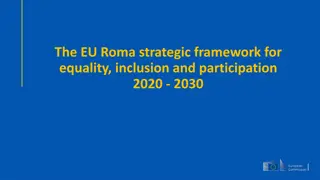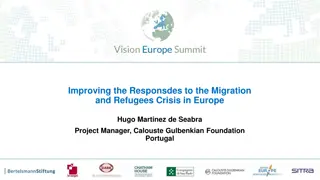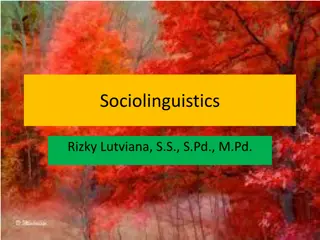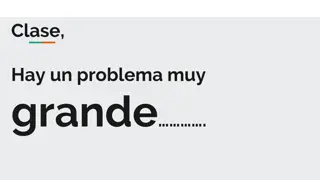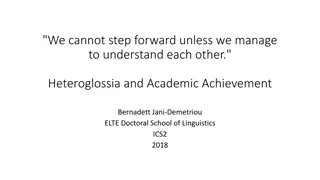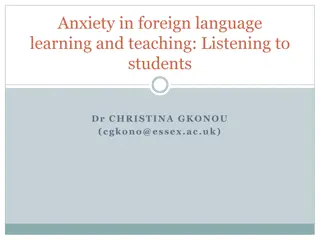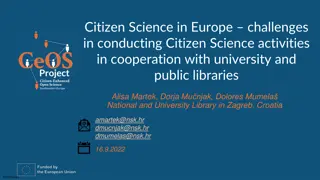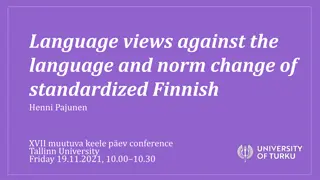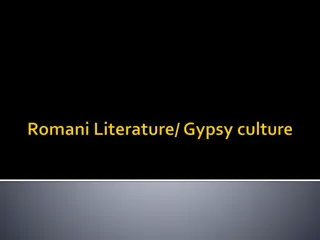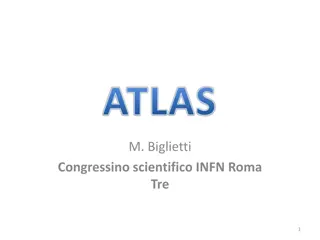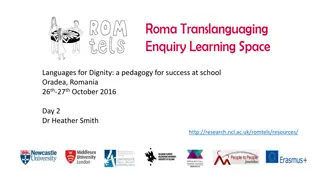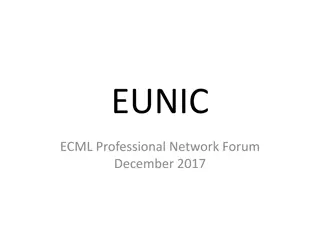Challenges Faced by Roma Language Education in Europe
The European Regional Forum on Education, Language, and the Human Rights of Minorities, led by Policy and Advocacy Officer Roland Ferkovics, addresses systematic and institutional barriers in Roma language education. Issues include deficiencies in state curricula, lack of teaching materials, absence of Roma representation in textbooks, and misinterpretation of the right to education in minority languages, impacting educational outcomes for Roma students. The forum advocates for inclusive and quality education tailored to minority language speakers to bridge educational disparities.
Uploaded on Sep 18, 2024 | 0 Views
Download Presentation

Please find below an Image/Link to download the presentation.
The content on the website is provided AS IS for your information and personal use only. It may not be sold, licensed, or shared on other websites without obtaining consent from the author.If you encounter any issues during the download, it is possible that the publisher has removed the file from their server.
You are allowed to download the files provided on this website for personal or commercial use, subject to the condition that they are used lawfully. All files are the property of their respective owners.
The content on the website is provided AS IS for your information and personal use only. It may not be sold, licensed, or shared on other websites without obtaining consent from the author.
E N D
Presentation Transcript
European Regional Forum on Education, Language and the Human Rights of Minorities Roland Ferkovics, Policy and Advocacy Officer, REF Budapest 6-7 May 2019, Brussels
Outline REF s standpoint on the issue Systematic and institutional barriers in education in Roma language (Romanes) Deficiency of state curricula and assessment systems Absence of Roma and misrepresentation of Roma in textbooks and curricula Educational model of REF related to education and minority language
REFs standpoint Mission: educational outcomes between Roma and non-Roma The issue of broader education of Roma including inclusion and provision of quality education. REF welcomes the right to education in minority languages frameworks from educational, cultural and identity perspectives to close the gap in desegregation, as legal
Systematic and institutional barriers in education Lack of teaching materials and curricula for teaching in Roma language in school institutions. Even if there are limited curricula those are not tailor-made for all users. Example Northern Macedonia. Missing subjects in Pedagogy University Departments focusing on multicultural education with special attention on Roma lack of sensitization of teaching staff and sensibility of educational needs of Roma As a result, there are no trained teachers who could teach in Romani language Lack of Roma specific university departments (such as Romology Department in Hungary) Lack of political recognition of Romani language-led schools in the region (the position of such schools is not comparable to for instance Turkish schools in Bulgaria) Intentional misuse and misinterpretation of the right to education in minority language. Example from Hungary when Roma children have been segregated.
Deficiency of state curricula, Roma textbooks and assessment systems State curricula are not designed neither for teaching Romani language in primary schools as subject nor for teaching Romanes all mandatory subjects. Lack of Roma language textbooks State curricula and assessment systems are not reflective neither sensitized for the mother tongue of children. Assessment systems are only ONE (mainstream) language driven, not considering children with other mother tongue. In CZ, SLO, HU Roma children have been directed to special schools since having lack of knowledge of mainstream language. D.H. case, Kiss and Horvath case Infringement procedures against all three countries as of Roma children being discriminated in school institutions Roma heritage and culture are not reflected in mainstream curricula
Absence and misrepresentation of Roma in textbooks Roma are absent from textbooks or very little is presented about Roma In case there is any representation the following trends can be observed: Presented in negative frameworks (such as no willingness to integrate, wandering lifestyle, etc.) No information on Roma contribution to the country (economic, political, cultural, social) Vanishing information on Roma Holocaust REF has always made attempts for fair and better representation of Roma in textbooks (CoE, GEI and REF research + advocacy) Roma representation in textbooks also contributes to further keeping and strengthening Roma identify, culture and language. (It is an incentive for Roma to be proud for the origin) Also pivotal for non-Roma to know Roma culture and language not being afraid of the unknown
Educational model of REF related to education and minority language REF s interventions: Roma teacher assistants Role: to assist and maintain the relation between Roma parents and kindergartens and to help Roma children in kindergartens when facing with language barriers It was originally an REF initiative via financially supporting kindergartens to employ Roma teacher assistants In Northern Macedonia the model was taken over made as public policy (running in 20 locations) Challenges Roma teacher assistants scope of activities has been influenced by the kindergartens Roma teacher assistants nature of activities also have been influenced Less focus on the original duty and more on general operational task
Thank you for your attention!
